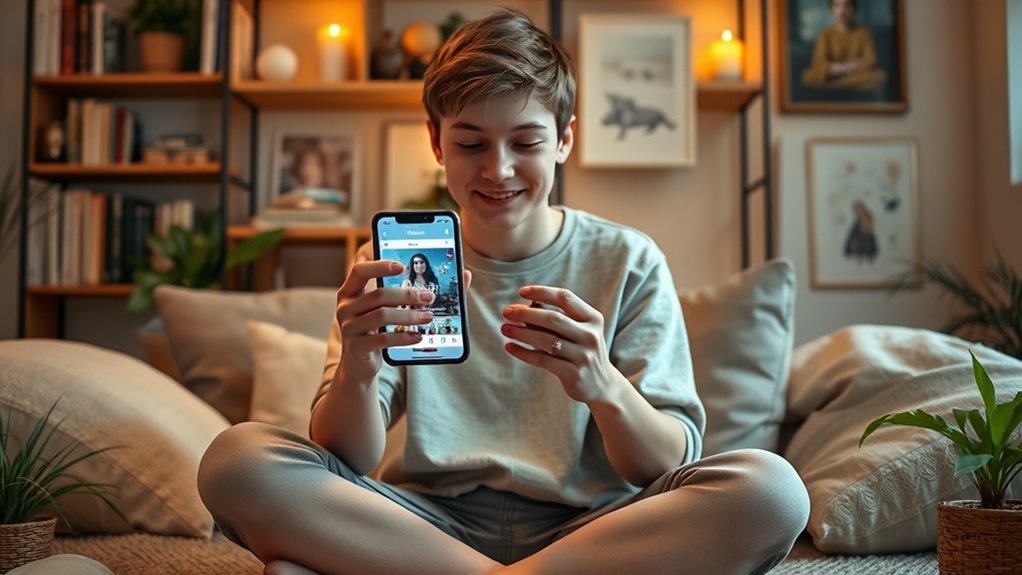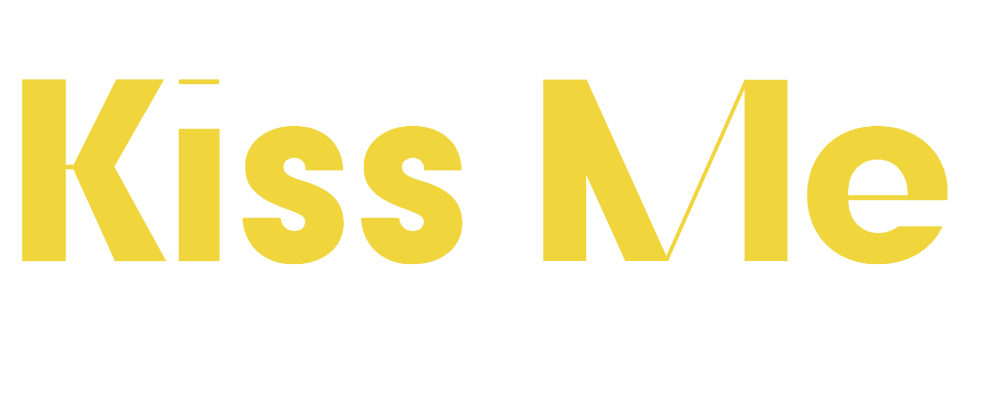On TikTok, you’ll find a growing community where Gen Z shares mental health tips, stories, and support. The platform makes therapy and coping strategies more accessible, normalizing conversations about anxiety, depression, and burnout. Creators offer quick, practical tips like mindfulness exercises and affirmations, fostering empathy and understanding. If you want to discover how TikTok is redefining mental health support and how you can join in, keep exploring further.
Key Takeaways
- Gen Z uses TikTok to access peer support, share coping strategies, and normalize mental health conversations.
- TikTok provides an accessible, less intimidating platform for mental health education and awareness.
- Creators share practical tools like mindfulness and journaling, making coping techniques easy to adopt.
- Community-driven content fosters empathy, reducing stigma and encouraging open discussions about mental health.
- TikTok serves as a digital support network, offering immediate emotional connection outside traditional therapy settings.

In recent years, TikTok has become more than just a platform for dancing and comedy; it’s now a space where many people turn to for mental health support through what’s commonly called “TikTok Therapy.” Users share advice, personal stories, and coping strategies in short videos, making therapy feel more accessible and less intimidating. This shift is especially noticeable among Gen Z, who often seek out peer support and digital coping methods to navigate their mental health challenges.
TikTok’s format lends itself well to peer support, creating a community where users feel seen and heard. When you watch these videos, you realize you’re not alone in your struggles. People openly talk about anxiety, depression, self-doubt, and burnout, breaking down stigma and normalizing mental health conversations. It’s also a platform that promotes mental health awareness, helping to educate and destigmatize issues that were once considered taboo. The sense of connection is immediate and relatable, and you often find yourself commenting or sharing your own experiences, fostering a digital coping network. It’s like having a support group at your fingertips, available anytime you need reassurance or advice.
Many creators focus on providing practical tips and coping strategies that you can easily incorporate into your daily life. These can include mindfulness exercises, breathing techniques, journaling prompts, or affirmations. Because these videos are short and straightforward, they’re easy to consume and implement, making mental health practices less overwhelming. You might find yourself trying a quick grounding exercise shared by a peer and noticing how it helps reduce your anxiety in that moment. This kind of digital coping becomes a portable toolkit that fits into your routine, empowering you to manage stress actively.
The community aspect also encourages you to share your journey and learn from others’ experiences. When you see someone discussing their progress or setbacks, it helps normalize the ups and downs of mental health. This peer-driven approach fosters empathy and understanding, which can be hard to find elsewhere. It’s not therapy in the traditional sense, but it provides a form of emotional support that’s accessible and immediate. You’re reminded that mental health is a shared human experience, and that peer support can be a valuable supplement to professional help.
Frequently Asked Questions
How Effective Is Tiktok Therapy Compared to Professional Counseling?
You might find TikTok therapy engaging, but its efficacy comparison to professional counseling is limited. While some tips can boost your mental health, it lacks the depth and professional credentials that guarantee effective treatment. Professional counselors have specialized training and credentials, making their guidance more reliable for serious issues. Relying solely on TikTok therapy could overlook underlying problems that need expert attention, so consider combining both for the best results.
Are There Risks of Misinformation in Tiktok Mental Health Content?
Yes, there are risks of misinformation spread in TikTok mental health content. You should be cautious because creator credibility varies, and not all share accurate or evidence-based advice. Always verify information from trusted sources and consult mental health professionals before making decisions based on social media posts. Relying solely on TikTok for mental health support can be risky, so use it as a supplement, not a substitute, for professional help.
How Can Users Identify Credible Mental Health Tiktok Creators?
You can identify credible mental health TikTok creators by checking their source verification and creator credentials. Look for professionals with relevant qualifications, such as licensed therapists or psychologists, and verify their credentials through official websites or professional organizations. Trust creators who cite reputable sources, provide balanced information, and avoid sensationalism. By paying attention to these signs, you guarantee you’re consuming accurate, reliable mental health content on TikTok.
Is Tiktok Therapy Suitable for Severe Mental Health Conditions?
TikTok therapy isn’t suitable for severe mental health conditions because of its limitations. It can’t replace professional treatment, especially during emergencies or crises. If you’re experiencing serious symptoms, you should seek immediate help from qualified healthcare providers. Social media can offer support and information, but it’s essential to recognize its boundaries and prioritize emergency services when needed. Never rely solely on TikTok for managing severe mental health issues.
What Privacy Concerns Exist When Sharing Mental Health Stories Online?
When sharing mental health stories online, you should be aware of data privacy and online safety concerns. Your personal details might be exposed or misused, risking privacy breaches. You could also encounter cyberbullying or unwanted attention. To protect yourself, think carefully before posting sensitive information, use privacy settings, and avoid sharing identifying details. Staying vigilant helps guarantee your online experience remains safe and supportive.
Conclusion
So, seize the social sphere and sift through the stories on TikTok. As you navigate this new nurturing network, remember that sharing, supporting, and seeking solace can spark strength and self-awareness. Embrace the empowering environment, where vulnerability and validation foster growth. By blending bravery with belief, you’ll build a brave band of believers, boldly battling burdens and blossoming into a better, balanced you. Let TikTok be your tool for transformation and truth.










